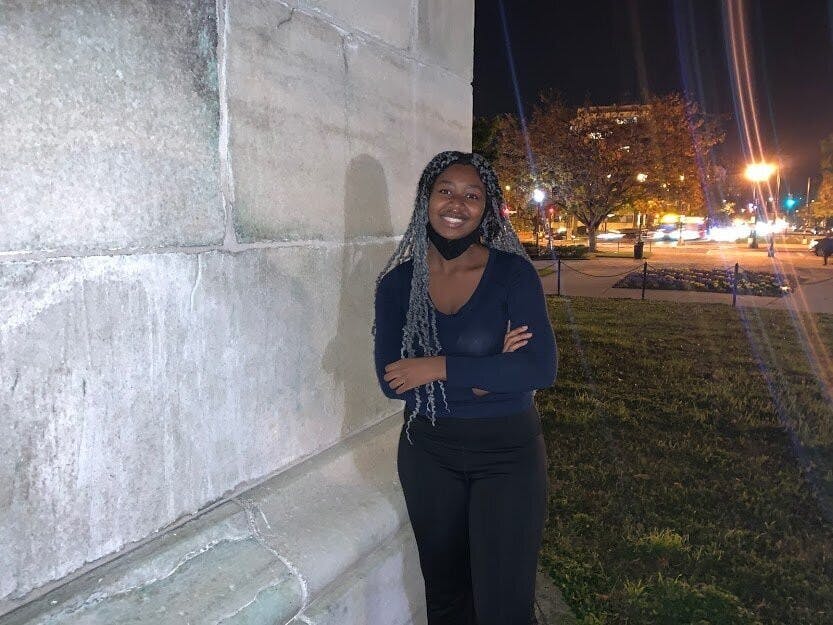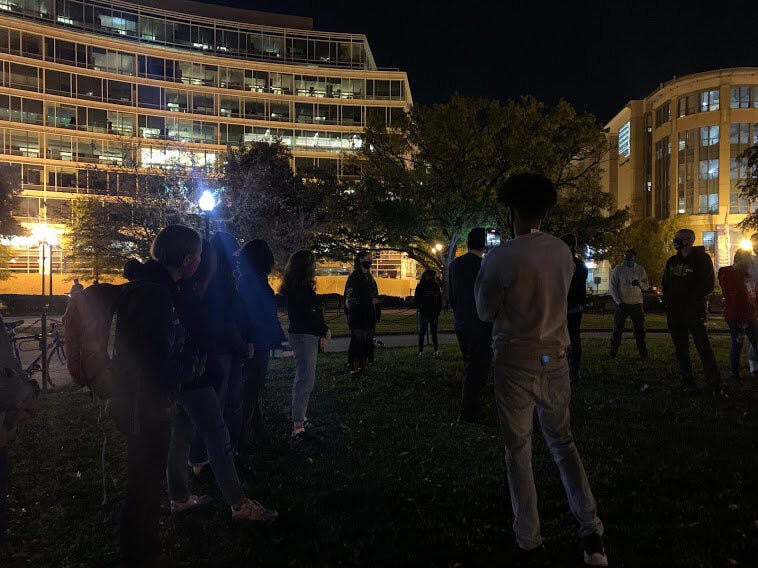BY: SOFIA DEAN
On Nov. 6, around 20 students and young to middle-aged adults gathered on a chilly night at Washington Circle Park amid an eerie election week in DC.
Gatherers came in support of a Black Lives Matter rally called "They Will Hear Us" organized by AU freshman, Nana Yaa Boateng. The purpose of the rally was, "to create a dialogue in a community that has too long sat comfortably behind their performative activism," according to the Instagram flier promoting the event and included several speakers.

Photo of Nana Yaa Boateng by Sofia Dean
Having already organized work in her hometown Baltimore, MD, Boateng wanted to get involved in the DC community, knowing it was the perfect place for her passion for activism. She volunteered at the 2020 Commitment March: Get Your Knee Off Our Necks, held in DC in August, with the murder of Breonna Tayor inspiring her to do more, along with noticing a pattern in the predominantly white area of Northwest DC.
"When I first moved to Northwest DC, I noticed a lot of Black Lives Matter signs, but there's not a lot of Black families. That speaks volumes of the gentrification in the area and I think this city embodies performative activism and they need someone to call them out for it," Boateng said.
Boateng contacted local DC organizers to help her with logistics in organizing the rally. She began the night by leading a series of call and response protest chants, following by a series of speakers who shared their experiences and thoughts with the crowd.
The speakers came from an array of backgrounds with most being local DC students, and one woman hailing from New Jersey with an extensive activist background. Some speakers spoke on their experiences as being Black and a part of the LGBTQ+ community, others on their experiences as Black men and women. Many shared their thoughts on systemic racism in the U.S. and provided action items for the crowd to make a difference.
AU freshman, Nasri Maktal, was one speaker who was inspired to get involved after hearing about the protest through friends. Having also been involved in community organizing back home in St. Paul, Minnesota, Maktal felt ostracized by the majority of white students in high school, and would just like for white people to listen and uplift Black and Brown voices.
Maktal and freshman Meron Washington, who was also part of organizing the protest, described how balancing community organizing and school, along with facing racism, can be exhausting.
Washington got involved when she met Boateng at a protest at the beginning of the semester. Both were tired of the performative activism they noticed.

Photo of Students Gathered at Washington Circle Park by Sofia Dean


